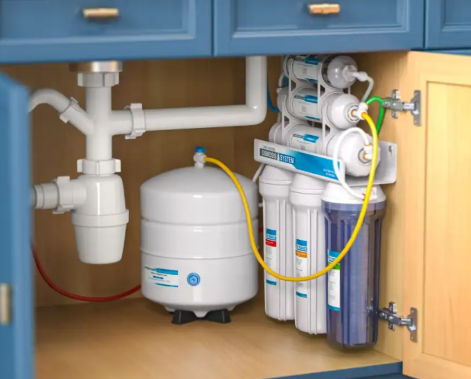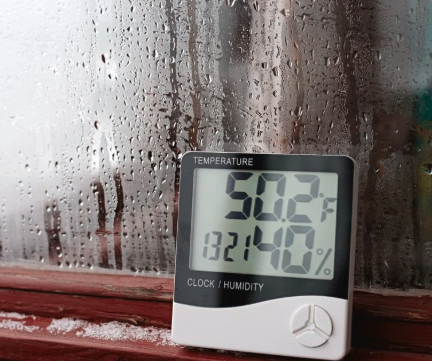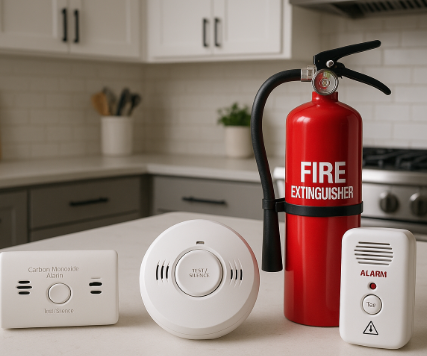Hiring a cleaning service involves far more than comparing prices or choosing the cheapest option. To ensure a safe, reliable, and professional experience, it’s essential to understand industry practices such as insurance coverage, bonding protections, staff screening, and what “deep cleaning” truly includes. Clear standards help avoid misunderstandings and protect your home.

1. Not All “Deep Cleaning” Services Are Actually Deep
Many cleaning companies advertise “deep cleaning,” but the term has no fixed industry standard. In reality, one provider’s “deep cleaning” may only include baseboards and blinds, while another might include inside appliances, grout brushing, and hand-detailed vents. The key is: don’t assume—ask for a checklist. Legitimate services will break down every step, not just use vague terms.
2. Understand the Hidden Gaps in the Quote
A suspiciously low quote often means hidden omissions. For example, window interiors may be included, but not the sills. Floors may be mopped, but corners and under furniture untouched. Some companies don’t include cleaning supplies in the price. Always ask:Are supplies included? How many hours are budgeted? What happens if the job takes longer? Understanding the pricing structure avoids frustration and unexpected add-ons.
3. Team Cleaning vs. Solo Cleaner: There’s a Strategy Behind It
Some companies send a team of 2–4 people, others send one experienced cleaner. Teams are faster but can be noisier and less consistent (e.g., one person rushes bathrooms, another does windows). Solo cleaners often offer higher attention to detail but need more time. If your space is large, a team may be efficient. For small apartments or detail-oriented cleaning, a solo professional might deliver better results.
4. Know the Insurance You’re Not Thinking About
More people ask “Are you insured?” But what you should ask is: Do you carry general liability insurance (for broken items, spills)? Do you have workers' compensation insurance (if someone is injured on your property)?
If a cleaner without workers’ comp falls in your home, you could be liable. Always request proof of insurance—reputable services won’t hesitate to provide documentation.
5. There Are Levels of Bonding—And Most Ads Don’t Tell You Which
“Bonded and insured” sounds good, but bonding has levels. Some only cover theft after a court conviction, while others protect you if the cleaner simply goes missing after damage. Check if the bond is:Dishonesty bond, Business service bond. Janitorial bond
Most ads won’t say. Ask for the bond type and coverage limit.
6. Background Checks Are Not All the Same
Some services say they "screen" employees. That might mean a reference call—or it might mean a full national criminal background check. If you’re letting someone into your private home, ask: Is it a national check or local? Do they check every staff member or just team leads? How often is it updated?
Some budget services skip this entirely, relying on quick hiring and high turnover.
7. Beware the “First-Time Clean” Trap
Many companies offer an appealingly low rate for the first visit—but don’t mention that it’s a basic-level service that skips problem areas. Others charge a higher first-time fee, sometimes 2–3x the regular rate, under the reasoning that your space needs “resetting.” Neither is necessarily bad—but you must understand the logic and what you’re actually getting.
8. Ask About Product Knowledge, Not Just “Green” Labels
"Eco-friendly" is another buzzword with no legal standard. Some companies use vinegar-based solutions, while others use pH-balanced commercial-grade agents that are safe for surfaces but more effective.
Good providers will explain:
What products they use on wood, granite, tile, or stainless steel
Whether they carry neutral cleaners for delicate finishes
If you have allergies or pets, what are the low-residue options
If the cleaner can’t explain the purpose of each product, they may just be spraying and wiping without consideration.
9. Understand the Cleaning “Blind Spots”
Even trained teams can miss key areas unless they’re in the service checklist. Commonly neglected spots include:
Behind or under the toilet base, Vent covers and baseboard tops, Light switch panels and door handles, Ceiling fans
Some companies only touch what’s “eye-level” unless otherwise noted. Ask: what’s excluded from your standard clean?
10. Ask What Happens If You’re Not Satisfied—But Skip “Guarantees”
Instead of asking, “Do you guarantee your work?”, ask: What’s your process if I’m not happy with a result? How do I file a concern, and how fast is the response?
Some professional companies offer re-clean policies, but many only take complaints within 24 hours. Others offer a fixed time for touch-ups. The key is having a defined resolution process, not just vague promises.
Final Takeaway: Clarity Over Assumptions
Choosing the right cleaning service means knowing what questions to ask—and understanding that industry terms are often used loosely. Treat the process like hiring any skilled service provider: check documentation, evaluate detail, and ask specifics. A transparent provider will respect your questions and offer clarity, not confusion.






